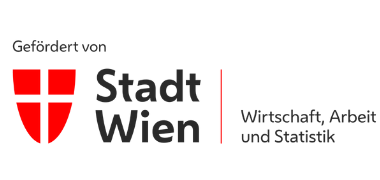
Innovative teaching: interactive, digital and self-regulated
Innovative teaching: interactive, digital and self-regulated
UAS BFI Vienna has well-established processes for the continuous development of courses and teaching quality.
We view learning as a process of interactive personal development in which students practice and expand their competencies individually, in groups or in collaboration with companies and external partners.
Teaching labs
New teaching methods often need to be trialled and evaluated to establish whether they can be effectively employed to enhance students’ competencies. Lecturers at UAS BFI Vienna carry out a range of teaching innovation projects to help ensure continually high standards of teaching and learning. One way of implementing such projects is in a teaching lab format. The university has set up teaching labs with the following focuses:
- Integration of e-learning into teaching
- Gamification and development of game-based learning
- Web conferencing tools for the online supervision of students and student working groups
- Learning-outcome-focused teaching as a means of supporting self-regulated learning
- Learning-progress tests and student self-assessment
E-teaching and e-learning
Instructional videos and digital content are playing an increasingly significant role in many of the university’s courses. Combining face-to-face and online teaching (e.g. using blended learning or flipped classroom approaches) offers students greater flexibility in terms of how they acquire knowledge, complete assignments and revise for exams when studying alone or as part of a group.
Gamification
Gamification is an approach used in both classroom and online teaching which introduces elements of game-play into learning processes to create exiting, cooperative educational experiences. It is a way of turning lectures on topics which students often find very challenging into highly engaging and motivating learning events.
Web conferencing
The use of web conferencing in teaching enables us to provide students with flexible, individual support, e.g. when students work with external partners, taking part in international courses held in conjunction with universities abroad, on semesters abroad or when writing a thesis or dissertation.
Student self-assessment
Students like to know how well they are doing, and want feedback during their courses in addition to their final grades. Quizzes and other forms of self-assessment are increasingly being used to help students gauge their progress. This puts them in a position to decide whether they are on track or need to intensify their learning.
Knowledge transfer
UAS BFI Vienna places a strong emphasis on knowledge transfer for lecturers to ensure that innovations in teaching can be rolled out rapidly to benefit as many students as possible. Lecturers attend transfer workshops to evaluate the findings and experiences gained from teaching innovation projects and discuss how effective new teaching methods can be used in other courses.
This enables lecturers to gain valuable insights into how to use the new methods in their own courses directly from the staff who came up with the innovation. It also makes good teaching practice more visible and easier to implement for all lecturers.
The majority of the university’s teaching innovation projects form part of an initiative funded by the City of Vienna’s Municipal Department 23 (MA 23) titled Innovative Lehre. Steigerung der Lehrqualität durch hochschuldidaktische Kompetenzentwicklung (Innovative Learning: improving teaching quality by developing higher-education teaching skills).


